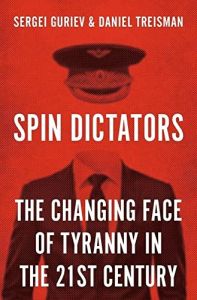The violent regimes of autocrats like Hitler, Stalin and Pol Pot may be over, but tyranny itself is not yet a thing of the past. In this accessible version of some of their more complex and innovative research, academics Sergei Guriev and Daniel Treisman cogently argue that dictators are changing with the times, becoming less violent but no less menacing to global democracy. They explain how these “spin dictatorships” evolve, how to recognize them and how to counteract their spread.
Despite a historical trend toward democracy, autocracy persists around the world.
Full democracy is a relatively recent historical phenomenon. Until 1900, even countries that held free and fair elections denied the vote to some segment of their populations, like women, minorities or other groups. Besides a handful of restricted suffrage republics like the United States, most political systems were either monarchies, alone or in conjunction with a constitution or parliament; oligarchies; or colonies managed by foreign powers.
In the 20th century, democracy spread in three waves: the first following World War I, the second after World War II and third from the mid-1970s until the middle of the 21st century’s first decade. In 2015, more than half of the world’s countries were electoral democracies, and about one-quarter of those had liberal democratic structures. Still, dictatorships persist. The first two waves of liberalism resulted in varying degrees of backpedaling to autocracy, in both its communist and fascist forms.
“Spin dictatorships” are now more common than “fear dictatorships...
Sergei Guriev is a Russian economist who is provost and a professor of economics at the Instituts d'études politiques in Paris. Daniel Treisman is a professor of political science at the University of California, Los Angeles, and a research associate of the National Bureau of Economic Research.









Comment on this summary